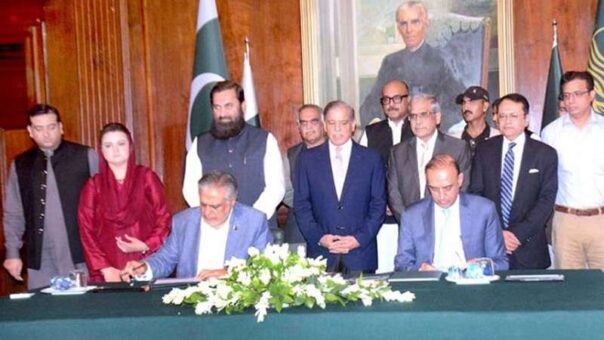Islamabad: In a significant development, Pakistan signed a Letter of Intent (LOI) on Saturday, signaling its intention to obtain a nine-month, $3 billion loan program from the International Monetary Fund (IMF).
(more…)Tag: IMF
-

Pakistani Business Community Applauds IMF Agreement for Economic Stability
Karachi, July 1, 2023: Pakistani businessmen have expressed their appreciation for the recent loan agreement between Pakistan and the International Monetary Fund (IMF).
(more…) -

IMF Assistance to Address Pakistan’s Immediate Financial Challenges, APTMA Says
Islamabad, June 30, 2023: In a recent announcement, the All Pakistan Textile Mills Association (APTMA) highlighted the crucial support provided by the International Monetary Fund (IMF) to address Pakistan’s immediate financial challenges.
(more…) -

New IMF Agreement to Strengthen Pakistan’s Economy, says PM Sharif
Islamabad, June 30, 2023: Prime Minister Shehbaz Sharif announced on Friday that Pakistan has reached a Staff-Level Agreement with the International Monetary Fund (IMF) on a nine-month US$3 billion Stand-By Arrangement (SBA).
(more…) -
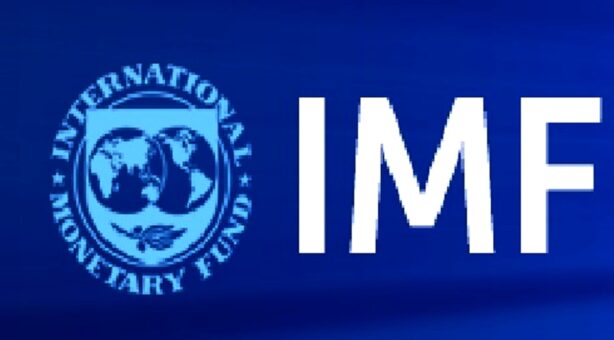
New IMF SBA for Pakistan Exceeds Expectations, Analysts Say
Karachi, June 30, 2023: Pakistan’s new standby arrangement (SBA) with the International Monetary Fund (IMF) has surpassed expectations, according to analysts at Topline Research.
(more…) -
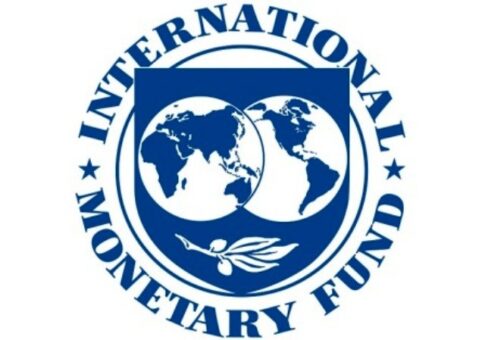
Pakistan Clinches $3 Billion IMF Bailout Package
Islamabad, June 30, 2023: Pakistan has secured a crucial $3 billion bailout package from the International Monetary Fund (IMF) as the country grapples with economic challenges and external shocks.
(more…) -

Finance Minister Ishaq Dar Optimistic about Positive IMF Outcome for Pakistan
Islamabad, June 28, 2023: Minister for Finance, Senator Mohammad Ishaq Dar, expressed optimism regarding the ongoing negotiations between Pakistan and the International Monetary Fund (IMF), stating that positive news would be announced soon.
(more…) -
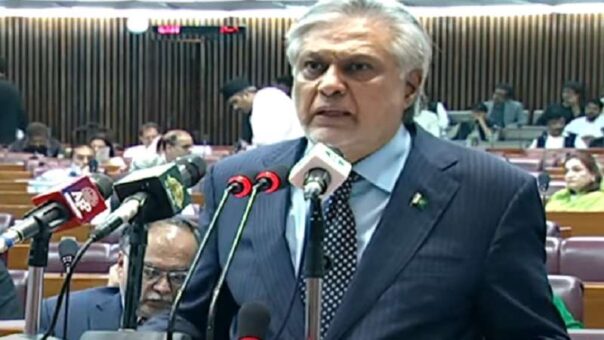
Pakistan imposes additional tax burden of Rs215 billion to secure IMF loan program
ISLAMABAD: In order to overcome the impasse in securing a loan program from the International Monetary Fund (IMF), Pakistan has imposed an additional tax burden of Rs215 billion on its citizens.
(more…) -

PM Sharif Reaffirms Commitment to IMF Program for Pakistan’s Economic Stability
Karachi, June 22, 2023: Prime Minister Shehbaz Sharif reaffirmed the Pakistani government’s full commitment to the ongoing Extended Fund Facility (EFF) program of the International Monetary Fund (IMF).
(more…) -
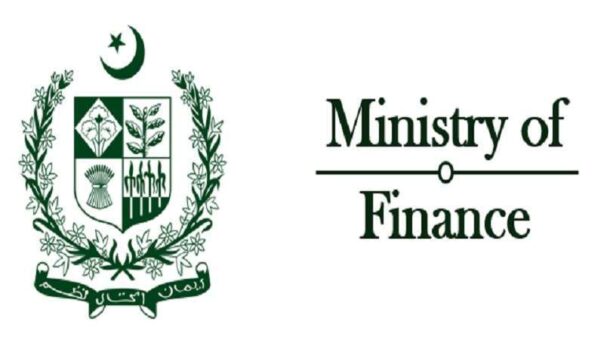
Pakistan Responds to IMF Concerns: Addressing Budget 2023-24 Issues
In response to concerns raised by the International Monetary Fund (IMF) regarding Pakistan’s budget for the fiscal year 2023-24, the country’s finance minister issued a statement on Friday, addressing the issues raised and reaffirming Pakistan’s commitment to the IMF program.
(more…)
